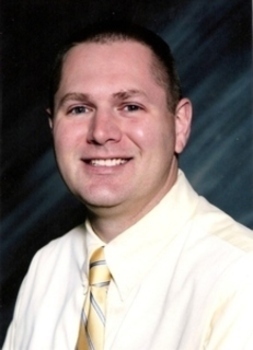This text-based course is a written transcript of the course, "Compliance: More Than Just Following The Rules," presented by Rex Crosby, OTR, on November 11, 2011.
Click Here to View Supplemental Handouts
This text is being provided by Communication Access Realtime Translation in order to facilitate communication accessibility and may not be a totally verbatim record of the proceedings.
>> Amy: Hello, everybody, welcome to this SpeechPathology.com e-seminar titled, "Compliance: More Than Just FollowingThe Rules" presented by Rex Crosby. Rex Crosby, OTR, has many years of experience as an occupational therapist in a variety of settings including inpatient rehab, acute care, and outpatient neuro and pediatric Rehabilitation. Rex has extensive SNF experience as a clinical OT and therapy program manager. Currently he is the Director of Continuous Quality Improvement for Encore Rehabilitation Services. Rex has presented at state conferences on topics including recovery audit contractors, census development, maximizing reimbursement through therapy, and clinical documentation. Rex, thank you for sharing your expertise with us.
>> Rex: Thank you for the introduction and thank you to everyone today who is listening to "Compliance: More Than Just Following The Rules." When I was putting together the presentation, I wanted to make sure that when discussing compliance, this would not be one of those regular in-services that covers the basics of what compliance is. I know a lot of people have compliance training at their orientation for their jobs, or have a manual that sits on the shelf collecting dust until the following year when they have to have a review of compliance. In the role that I play as Director of Continuous Quality Improvement for my company, I have an opportunity to get into a lot of facilities and meet with a lot of administrators, nursing staff, and therapy staff. I get a chance to observe how day to day operations are going in each of these facilities and with each of the professionals that are providing healthcare services. It is interesting to watch how everybody interprets what compliance is when they are doing their daily tasks, because compliance is something that drives everything that we do every day when we walk into our facilities or our school systems or wherever we happen to work.
I want to talk today about why compliance is more than just following the rules, and go over a little of the background of where compliance laws come from and what we must be doing on a daily basis to do our jobs effectively.
Objectives
- I am going to explain what compliance means. That's going to be a tough task because compliance has many different facets. I want to give you a broad understanding of what it means to be compliant within your workforce.
- I will describe the guidelines of an effective compliance program. This will help those of you in a practice where you believe your compliance program is not what it should be, or if you just want a review of what the compliance program should be about.
- We are going to identify situations that should be reported and areas of concern in health care. The areas of concern and health care are what the Office of the Inspector General looks at on a yearly basis.
What is Compliance?
Before we start talking about compliance, here is just a little background information. Every year there is more than one trillion dollars spent on healthcare services in the United States, and the majority of the dollars that are spent come from us, the American worker, in the form of taxes, premiums and fees.
